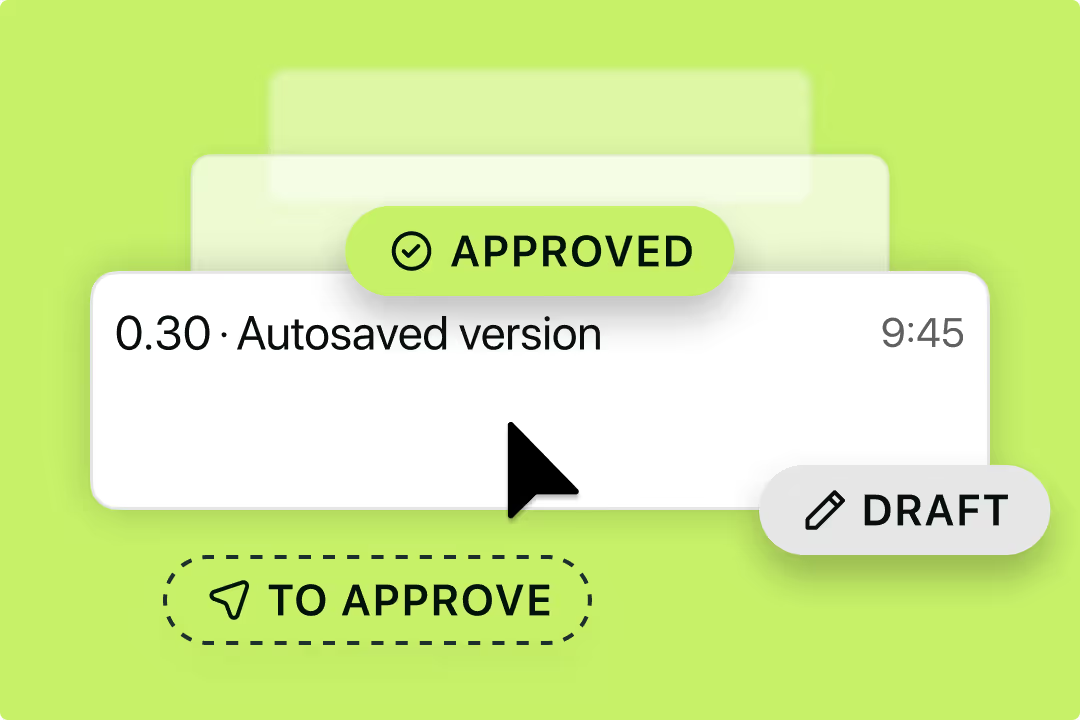Solutions
Customer Support
Resources
This comprehensive guide to contract reporting covers what contract reporting is, why it matters, and how you can report on contracts without it becoming a drain on legal’s time. Let’s get started.
Contract reporting is the process of collecting, analyzing, and sharing important insights from contracts.
What the contract reporting process looks like will depend on the metrics your business tracks progress against, how many contracts you manage, and the resources available.

However, a typical process without contract management software looks a bit like this:
Sounds tedious? Well, it is tedious. Without the right software in place, contract reporting means moving between multiple tools, manually reviewing contracts, and doing plenty of admin work.
With that in mind, it can be tempting to leave your contracts buried in shared drives until you need information from a specific contract. But as many in-house legal teams know, it’s not wise to neglect contract reporting, and here’s why.
Contract reporting is important because it enables you to keep control of your contracts and the data within them, even when volumes are growing rapidly.
As your business grows, the number of contracts you create, manage and store grows with you. This makes keeping tabs on your contract portfolio near impossible, particularly with a lean legal team.
As many scaleups know all too well, this can present a number of problems:

Luckily, there’s a solution.
Contract reporting can prevent these problems from occurring in the first place. Reporting on contracts ensures that all of the important data from contracts is captured and shared in a concise and timely way, with all of the right people.
Contract reporting enables you to:
We now know what contract reporting is, how it works, and why it’s important. But what we don’t know is how to make the contract reporting process more efficient. Let’s get into that next.
It’s essential to be consistent in your approach to contract reporting if you want to make sure the data you’re sharing is accurate. This means extracting data from contracts on an ongoing basis and reviewing that data regularly.
This sounds like hard work. But, if you use a tool like Juro which automatically captures and tracks contract data for you, consistent contract reporting can be made simple.
Another important tip for contract reporting is to make sure you’re delivering the information that stakeholders actually want to know about contracts.
Contracts are cram-packed with data that can be tracked. But, like with any business reporting, it’s important to be selective about the insights you generate and share from that data.

Ask your senior stakeholders what they want to know about your contract portfolio and decide for yourself which data points matter most.
For in-house legal teams, it could be the time to sign. But for finance teams, it could be missed contract renewal deadlines, or the average contract value that they’re interested in.
Each insight can benefit different teams in different ways, so be sure to present the right numbers to the right people.
It’s also important to display your reports in a way that makes them easy to understand. This is where an analytics tool can be useful.
Raw data can be difficult to digest, particularly for stakeholders that aren’t familiar with the process and tools you use. That’s why it’s important to display your reports clearly using a contract dashboard, or in another visual format.
In Juro, users can run reports based on fields and tags and instantly share these with other teams. This is considerably easier than trawling through the cells in an Excel spreadsheet to find the information you need to know.
It sounds simple. However, to audit your contracts effectively and create accurate reports, you need to store your contracts effectively in the first place. After all, lost contracts and missing data can skew contract reports, making them unreliable as a result.

That’s why it’s important to ensure you have a robust approach to contract storage.
Some businesses will store their contracts in Sharepoint, while others may have contracts scattered across shared drives or in physical filing cabinets. Whatever way you choose to store your contracts, you need to make sure that they are:
Juro’s smart storage solution can guarantee just that. Not only are contracts stored securely in Juro to prevent loss or damage. Users can also set certain permission controls on contracts to ensure they’re only accessible to certain teams and individuals.
{{quote1}}
Contracts stored in Juro are also fully searchable using OCR. This means that you can search through thousands of contracts for specific words and clauses in seconds. You can also compile the data from these contracts into reports in just a few clicks.
Juro is the all-in-one contract automation platform that enables you to automate legal contracts at scale. To find out more about how Juro can enable your team to streamline the creation, execution and management of legal contracts - including contract reporting - book a personalized demo today.

Contract managers are typically responsible for contract reporting. However, not all businesses have the luxury of having a contract specialist or manager in-house. Instead, many businesses will rely on their legal department to report back on key data.
Contract management reporting is a process used to evaluate how successfully you manage your contracts. This type of reporting enables you to identify bottlenecks in your contract workflow and opportunities to improve it.
Lorem ipsum dolor sit amet, consectetur adipiscing elit. Suspendisse varius enim in eros elementum tristique. Duis cursus, mi quis viverra ornare, eros dolor interdum nulla, ut commodo diam libero vitae erat. Aenean faucibus nibh et justo cursus id rutrum lorem imperdiet. Nunc ut sem vitae risus tristique posuere.

